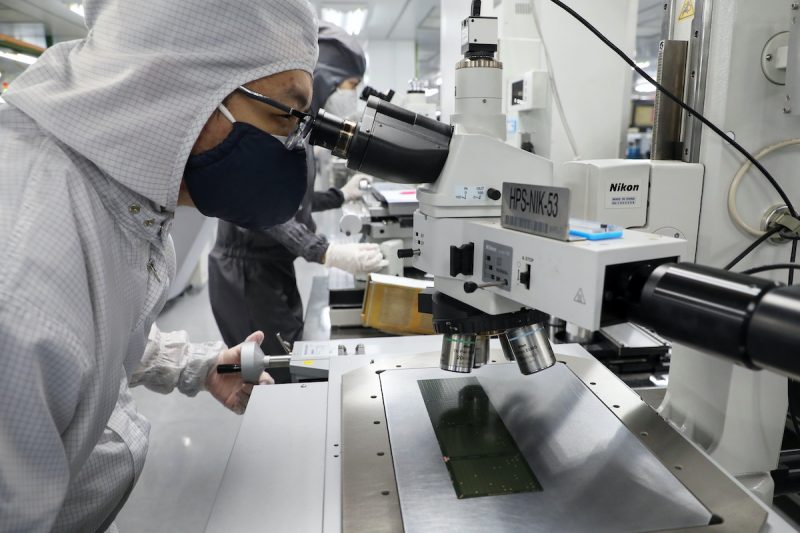China remained one of the largest markets for European chip-equipment maker ASML in 2022 amid mounting concerns of possible new curbs on its exports to the country.
CEO Peter Wennink said “nothing has changed” currently regarding ASML’s exports to China. But US President Joe Biden and Dutch Prime Minister Mark Rutte last week discussed possible new export restrictions on some of ASML’s sales to customers in China due to security concerns.
Their discussion came after the United States imposed sweeping new export restrictions on its own companies in October last year.
Also on AF: ASML’s Taiwan Expansion Signals Chip Sector’s Next Big Leap
“We just have to wait for the governments and the politicians to keep talking and come to a reasonable solution (on possible restrictions),” Wennink said.
“We can still ship DUV (older) … tools” to mainland China, he added.
Europe’s largest technology company reported China sales worth 2.16 billion euros ($2.4 billion) in 2022. That accounted for 14% of its total revenue.
China was the firm’s third biggest market behind Taiwan and South Korea.
Demand concerns cloud 2023 prospects
ASML reported fourth-quarter net profit of 1.82 billion euros on Wednesday, beating analyst forecasts for a net profit of 1.7 billion euros on sales of 6.38 billion.
The company predicted a rise of more than 25% in 2023 sales despite possible new curbs on its exports to China.
ASML has struggled to meet demand as top customers TSMC, Samsung and Intel are all engaged in major expansions. The maker of equipment to produce semiconductors said its order backlog had grown to a record 40 billion euros ($43.62 billion) at the end of the year.
Credit Suisse analysts said the earnings may be “taken negatively” by the market, given recent rallies in the company’s share price. ASML shares have risen 22% in January, up 55% from October lows.
“However, ASML’s structural prospects remain unchanged,” they said in a note.
CEO Wennink said that although the economic outlook for 2023 is clouded by worries over the economy and growing semiconductor inventories, customers also see conditions improving toward the end of the year and China’s economy recovering after the end of Covid-19 curbs.
“That means that the demand is still higher than what we can make,” he said.
- Reuters, with additional editing by Vishakha Saxena
Also read:
Netherlands to Consult Japan, Taiwan on US-China Chip Curbs
Japan, Netherlands ‘Won’t Impose Immediate China Chip Curbs’
US Chipmakers Selling Advanced Chips to China: ASML Chief
Infographic: ASML in the Centre of the US-China Chip War























